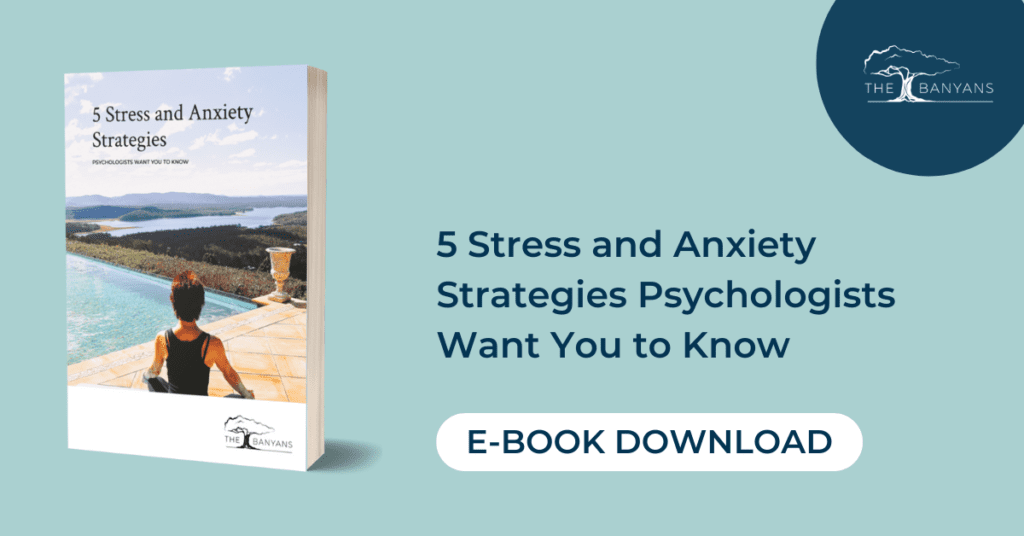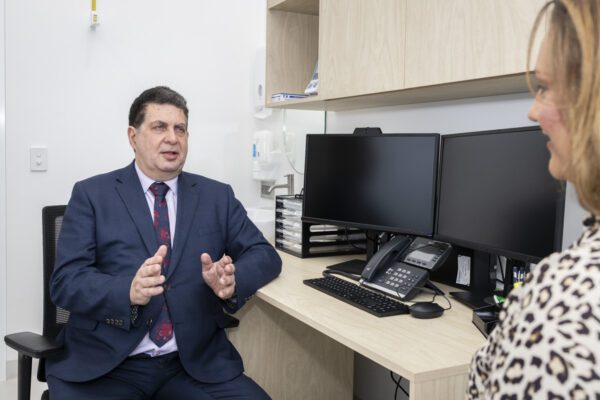We’re used to feelings of nervousness or intermittent anxiety: the way you may feel before a big presentation, the negative emotions that can occur from a disagreement with a friend or family member, and uncertainty over future outcomes.
However, while intermittent anxiety is a normal part of life, regular, persistent and intense anxiety is attributable to anxiety disorders. These may involve sudden and intense anxiety, resulting in panic or anxiety attacks that arise seemingly out of the blue.
Anxiety attack signs are often confused with other health conditions, especially those experiencing them for the first time. The physical response to an anxiety attack can be strong and unexpected.
Knowing the signs of anxiety and anxiety attack signs can help you better understand how they may be showing up in your life and better help inform you of the type of support you might need.
A Look at Anxiety in Recent Years
Recent global events and the roll-on pressures from these experiences have increased the levels of individuals reaching out for mental health support. In four weeks across August/September 2021, Lifeline Australia saw an increase in historical daily call volume, with calls up 14.1% and 33.1% for the same periods in 2020 and 2019. At the same time, the Kids Helpline received over 32,500 answerable contact attempts.
The latest data from The Banyans shows that mental health enquiries into the service for anxiety support have soared 264% from 2021 to 2022. As the most significant recorded increase in the group’s history, the demand for these services highlights the need for adequate and holistic support for patients.
Anxiety can have an immense impact on everyday life. With anxiety affecting a wide range of age groups, understanding what is within the realms of the ‘normal’ human experience and what has moved into an anxiety disorder territory can build a firm foundation for a healthy approach to understanding our mental health needs and concerns.

What are the Symptoms & Signs of Anxiety?
Anxiety may present differently from person to person. It’s vital that we’re each aware of these symptoms to fully monitor our mental, emotional and physical health.
Symptoms and signs of anxiety may include:
- A constant sense of nervousness
- Feeling restless
- A sense of tension
- A regular sense of panic, doom or imminent danger
- Increases in heart rates
- Hyperventilation
- Increased sweating
- Trembling
- Weariness or fatigue
- Challenges in concentration
- Insomnia or sleep challenges
- Digestion and gastrointestinal issues
- An inability to control or manage worry or concern
- The desire to avoid things, situation or people that may trigger anxiety
Anxiety can develop through a mix of genetic and environmental factors, but there might also be no obvious or direct cause behind why any individual develops anxiety. It could arise in early childhood, during the teenage years or appear slowly or suddenly throughout adulthood.
Related blog: Anxiety and self-compassion – when it’s time to ask for help
What are the Different Types of Anxiety Disorders?
Multiple specific disorders sit under the umbrella of anxiety, with each disorder requiring different kinds of treatment and support. Some types of anxiety disorders include:
- Panic disorders: The continued experience of panic attacks at unexpected times.
- Phobias: Excessive fears of certain situations, experiences or objects.
- Social anxiety disorder: An extreme and overt fear of being judged by others.
- Obsessive-compulsive disorder: The reoccurrence of irrational thoughts that result in performing repeated behaviours.
- Separation anxiety disorder: A fear that arises from being aware of specific people or places.
- Illness anxiety disorder (formerly known as hypochondria): Excessive anxiety about your health.
- Post-traumatic stress disorder: Anxiety related to a traumatic experience.
Depending on an individual’s type of anxiety disorder, the signs of anxiety can also differ.
Identifying Anxiety & Anxiety Attack Signs

Anxiety attacks, or panic attacks, are intense attacks of fear and anxiety that arise without warning. They can slowly build over time, potentially as stressful events approach, but are likely to ‘hit’ out of the blue.
The signs of anxiety attack include:
- Feeling faint or dizzy
- Experiencing shortness of breath
- Dry mouth
- Excessive sweating
- Chills or hot flashes
- An overwhelming sense of apprehension and worry
- Restlessness
- Stress or feelings of fear
- Numbness or tingling in the fingers, limbs or the face.
Anxiety attacks can be a surprising, confusing and intensely negative experience, particularly when experienced for the first time.
How to Manage the Signs of an Anxiety Attack
Cognitive-behavioural therapy is one tool that can help people experiencing panic attacks by aiming to shift the way they view challenging or scary situations, and building new, healthier approaches.
Certain medications can also assist in treating the symptoms of panic when they occur but are only recommended for short-term use during a crisis.
Deep breathing is also a powerful tool used by many when amid a panic attack. The ability to control breathing can lessen hyperventilation’s impact, which often makes a panic attack worse. This is also an excellent technique for those who experience panic attacks amid environments where they’re looking to keep calm, as deep breathing can take place privately and quietly. Experts recommend breathing in for a count of four, holding for a second, and then exhaling for a count of four to access the benefits of deep breathing.
When Does Anxiety Need Treatment?
Anxiety may be self-managed with varying degrees of success. However, when anxiety feelings linger and begin to negatively impact your day-to-day functioning, seeking the support of expert practitioners is a necessary step in finding a long-term approach to your mental health treatment.
Any treatment for anxiety will most likely begin with a conversation with your GP or a mental health care professional. Here, you can identify the symptoms you’ve experienced and may receive medication for treating immediate signs of anxiety.
A GP will most likely recommend the input and support of a mental health professional who can determine appropriate forms of psychotherapy and support from a psychologist. This kind of treatment can help to identify the underlying cause of an anxiety disorder, working towards a deep level of understanding and resolve that is only managed by medication rather than healing.
Tips for Self-Managing the Signs of Anxiety
Seeking the input and support of professionals is a powerful step in the direction of management and healing for those working through mental health concerns. However, there are a number of tools that can be put to work to build your self-management capacities.
Some of the top tips recommended by our professional team include:
- Connecting with someone you trust to share your experiences.
- Setting aside specific times to focus on your worries rather than allowing them to flow throughout the entire day.
- Invest in your physical health by moving your body and feeding it well.
- Using breathing exercises when feelings of anxiety or panic occur.
- Keeping notes in a journal as to what you’re experiencing when enabling you to spot patterns in triggers or early signs of what’s to come.
Download our stress and anxiety management e-book

Developed by qualified psychologists, this e-book goes through 5 actionable strategies you can implement to manage the stress and anxiety in your life.
Download the free e-book today.
Find Additional Support From Professionals to Manage the Signs of Anxiety & Anxiety Attacks

Delivered by qualified professionals in one-on-one sessions, The Banyans Anxiety Treatment Program sessions are tailored to you and your goals. Anxiety disorders can be managed and often resolved through the input of supportive and experienced expert practitioners.
The Banyans’ Anxiety Treatment Program is designed to equip individuals to develop coping techniques, better identify their symptoms and triggers, and learn how to manage their anxiety to thrive in all aspects of their lives. If you’re seeking support for your anxiety, reach out to our expert team 24/7 on 1300 226 926 or make an enquiry below and begin your journey towards wellness.





